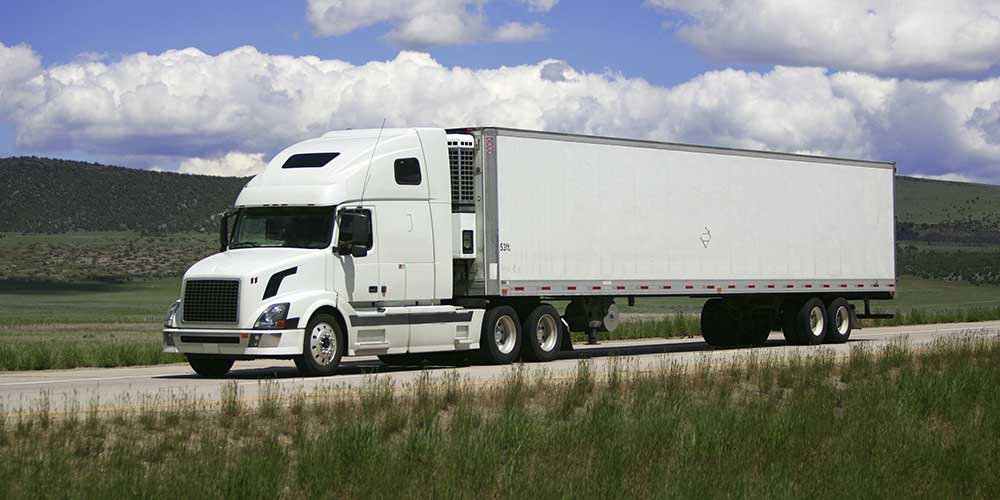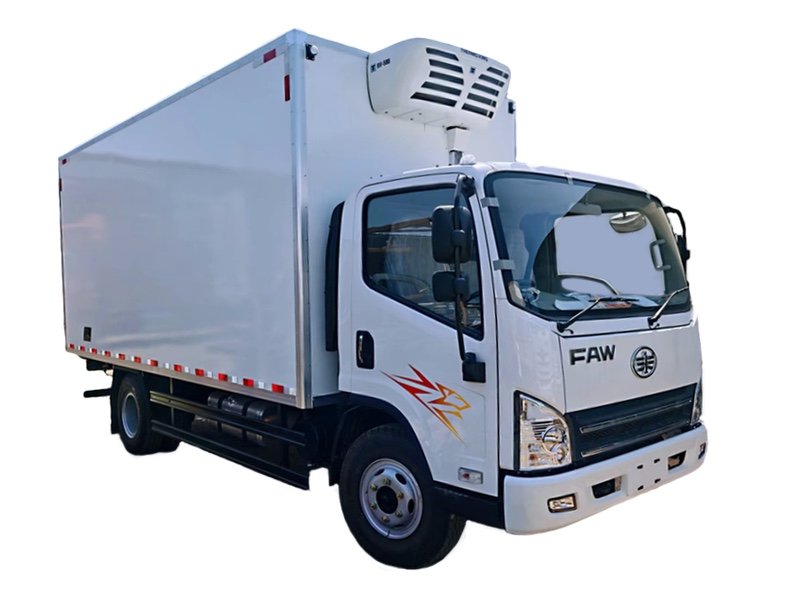Advanced Thermo King Truck Refrigeration Units for Reputable Distribution
Advanced Thermo King Truck Refrigeration Units for Reputable Distribution
Blog Article
Top Advancements in Transport Refrigeration: Enhancing Effectiveness and Security
The landscape of transportation refrigeration is undertaking substantial change, driven by innovations aimed at enhancing both performance and safety. As these innovations proceed to advance, it is important to explore their ramifications on functional practices and regulatory compliance, motivating a better assessment of how they reshape the future of transport refrigeration.
Smart Temperature Level Checking Solutions
In the world of transportation refrigeration, clever temperature level tracking systems have emerged as a critical innovation for ensuring the stability of temperature-sensitive items. These sophisticated systems leverage Net of Points (IoT) innovation to give real-time data on temperature fluctuations, making it possible for operators to preserve optimum problems throughout the supply chain. By continually tracking the temperature of refrigerated containers and lorries, business can quickly determine inconsistencies that might compromise item top quality.

In addition, wise monitoring systems commonly include automated notifies and notifications, enabling stakeholders to respond without delay to any kind of prospective problems. This aggressive method not just reduces the threat of spoilage but additionally improves compliance with regulatory standards controling food security and pharmaceutical transportation.
The assimilation of information analytics within these systems likewise assists in anticipating upkeep, assisting drivers to visualize prospective tools failures before they occur. This ability decreases downtime and enhances functional efficiency, ultimately causing cost savings.
Eco-Friendly Refrigerants
Smart temperature tracking systems play an important role in maintaining product high quality, however the efficiency of transport refrigeration also hinges on the option of cooling agents utilized. As ecological concerns rise, the shift in the direction of environmentally friendly cooling agents has actually become vital. Standard cooling agents, such as hydrofluorocarbons (HFCs), are well-known for their high Worldwide Warming Prospective (GWP), adding significantly to climate adjustment. In contrast, arising options like hydrocarbon-based cooling agents and hydrofluoroolefins (HFOs) existing lower GWP choices, offering both efficiency and sustainability.
These environment-friendly refrigerants not just decrease environmental impact yet also line up with global policies targeted at phasing out unsafe compounds. Their adoption can lead to improved energy efficiency, eventually decreasing operating expense for transportation refrigeration systems. The use of natural refrigerants, such as ammonia and carbon dioxide, has actually gained grip due to their excellent thermodynamic buildings and lower ecological impact.
Investing in environmentally friendly refrigerants is not simply a regulative conformity measure; it stands for a calculated decision that improves brand name reputation and fosters customer commitment. reefer trucks thermo king. By prioritizing sustainable methods, firms can add to a greener future while guaranteeing the honesty of carried goods
Advanced Insulation Materials
Making use of sophisticated insulation products is crucial for enhancing transport refrigeration systems, as they considerably boost energy performance and keep constant temperature level control. Conventional insulation approaches usually drop short in avoiding thermal transfer, resulting in boosted power consumption and fluctuating temperatures within cooled compartments.
Emerging products such as vacuum cleaner protected panels (VIPs) and aerogels offer premium thermal resistance, permitting for thinner profiles without click here for more compromising efficiency. VIPs, for example, make use of a vacuum cleaner layer to minimize convective and conductive heat transfer, making them suitable for space-constrained applications. Aerogels, understood for their permeable and light-weight framework, give phenomenal insulation while significantly minimizing general system weight.
In addition, incorporating phase change products (PCMs) into insulation systems can even more support temperature levels during transportation. These materials absorb and release thermal energy, effectively buffering against exterior temperature level variants.
The combination of these innovative insulation materials not only lowers the operational costs related to energy consumption but also prolongs the service life of temperature-sensitive goods. As the transport refrigeration sector remains to develop, the fostering of innovative insulation innovations will be crucial in enhancing both efficiency and safety in chilled transport.
Automated Course Optimization
The performance of transport refrigeration systems is significantly improved with automated path optimization, which leverages advanced algorithms and real-time information to identify one of the most efficient paths for shipment. By analyzing numerous aspects such as traffic patterns, climate problems, and shipment windows, these systems can substantially reduce traveling time and fuel usage.
Automated path optimization minimizes human error and subjective decision-making, which can lead to inefficiencies. This modern technology allows fleet managers to allocate resources more efficiently, making certain that cooled items keep their required temperature level throughout the journey. By maximizing routes, companies can additionally boost client fulfillment through prompt shipments.
Moreover, automated systems can adjust to unanticipated situations, get redirected here such as roadway closures or unexpected website traffic spikes, enabling dynamic rerouting. This flexibility not just shields the integrity of temperature-sensitive products but additionally contributes to total operational effectiveness.
Applying automated course optimization can result in significant price savings while decreasing the carbon impact related to transportation. As organizations progressively focus on sustainability, this advancement sticks out as a vital component in modern transportation refrigeration, aligning functional goals with ecological obligation. Inevitably, automated course optimization represents a considerable improvement in the quest for efficiency and safety in transport refrigeration.

Real-Time Data Analytics
Automated course optimization my site dramatically advantages from the combination of real-time information analytics, which gives critical understandings into the efficiency of transport refrigeration systems. By making use of real-time data, transportation drivers can monitor temperature changes and devices efficiency, making sure that perishable goods are preserved within needed criteria throughout transit. This aggressive method not just boosts the quality of the delivered products yet likewise alleviates the danger of spoilage and loss.

In enhancement to improving efficiency, real-time analytics boosts safety by ensuring compliance with governing standards for temperature control. This not only protects public health and wellness yet additionally fortifies a company's reputation - refrigerated transportation thermo king. As the transport refrigeration industry evolves, the integration of real-time data analytics arises as a keystone for driving development, sustainability, and operational excellence
Final Thought
To conclude, the developments in transportation refrigeration considerably enhance both performance and security within the market. Smart temperature level surveillance systems and real-time information analytics provide vital oversight, while environmentally friendly cooling agents and progressed insulation materials add to sustainability and energy effectiveness. Automated course optimization formulas not just decrease traveling time however additionally reduce ecological impact. Collectively, these technologies stand for a vital development in transport refrigeration, making sure compliance with governing standards and advertising a greener future.
The landscape of transport refrigeration is undertaking significant improvement, driven by developments intended at boosting both performance and safety and security.Smart temperature surveillance systems play a crucial role in preserving product high quality, but the effectiveness of transport refrigeration additionally pivots on the option of refrigerants utilized. Their adoption can lead to improved energy performance, ultimately decreasing operating expenses for transport refrigeration systems. Inevitably, automated path optimization represents a substantial innovation in the pursuit for effectiveness and security in transport refrigeration.
In final thought, the innovations in transportation refrigeration significantly improve both efficiency and safety within the market.
Report this page